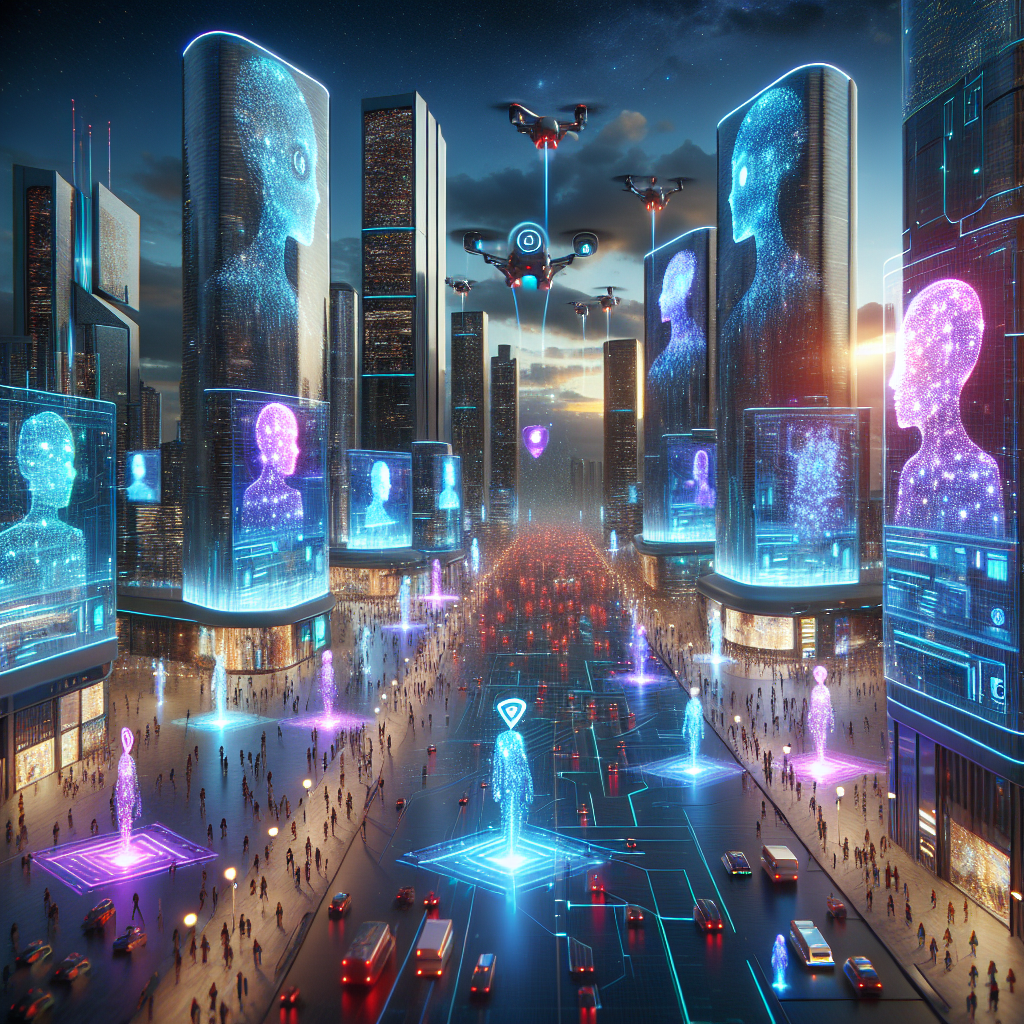Embracing the Future: AI Agents, Markets, and the Evolution of Digital Economies
In a landscape increasingly dominated by AI, a fascinating dialogue surrounding the integration of AI agents within our economic systems and the potential emergence of their own markets and currencies is unfolding. This exploration doesn't just tickle the fancy of tech aficionados but beckons a broader audience to unpack the implications of a world where AI agents not only participate in but evolve and possibly dominate certain sectors of our economy. Here, we delve deep into these notions, drawing insights from an insightful source and adding a zest of inquiry and speculation to flavor our understanding.
The Onset of AI-Driven Economies
Imagine a world where digital personas navigate markets, execute transactions, and even create their own economic systems. This isn't a sci-fi plot but a plausible future trajectory for our interaction with AI. The concept isn't new but the magnitude and intricacy of its potential implementation have evolved dramatically. As AI agents become more sophisticated, the possibility of them replicating, and eventually innovating upon, human-like market behaviors grows more likely. Initially, these agents may adopt existing currencies like Bitcoin, but as their interaction within these digital realms intensifies, the emergence of novel currencies and transactional tokens, possibly rooted in what we currently understand as NFTs, seems inevitable.
The implications of this are profound, signaling not just an economic but a societal shift towards embracing the digital and imaginary as tangibly valuable. While this might represent only a minuscule fraction of the GDP in its nascency, the potential for growth and significance is undeniable.
Blockchain and Beyond: The Role of Digital Currencies in AI Economies
In envisioning this future, cryptocurrencies and blockchain technology stand out as pivotal elements. Initially, AI marketplaces might lean on established cryptocurrencies for transactions, but the unique demands and dynamics of AI-driven economies could spur the development of new forms of digital currency. These innovations might offer enhanced security, efficiency, or anonymity, catering specifically to the needs of AI agents and their interactions.
Human-AI Interaction: Blurring the Lines
One might wonder whether these developments signal a division, a world where AI economies operate in parallel yet detached from human economic activities. However, the integration of AI into everyday tasks and services suggests a more interwoven future. AI assistants might handle routine tasks, from proofreading to personal finance management, bridging the gap between human needs and the efficiency of AI operations. This synergy could redefine employment, productivity, and even the essence of personal achievement, as individuals leverage AI to optimize their time and capabilities.
The Evolution of Intelligence: GPT and Beyond
As we stand on the brink of witnessing the capabilities of models like GPT-5, speculation abounds regarding the future of AI development. The conversation often circles back to the qualitative leaps in AI capabilities with each iteration. Yet, the true revolution may lie not in raw computational power or 'intelligence' but in the seamless integration of these technologies into the fabric of daily life and work processes.
Understanding the evolution and impact of GPT models.
Navigating the Uncertainties: Regulation, Ethics, and the Unknown
With great power comes great responsibility, and the rise of AI-driven economies is no exception. Regulation, ethics, and the unforeseen consequences of AI autonomy in economic activities pose significant challenges. As we venture further into this uncharted territory, balancing innovation with safeguards against misuse, exploitation, or unintended negative outcomes becomes crucial. The dialogue around these issues must be as dynamic and evolving as the technologies in question, involving a broad spectrum of stakeholders from policymakers to the general public.
Conclusion: A Brave New World
As we ponder the integration of AI agents into our markets and the potential for entirely new economic realms, it's clear that we're standing at the precipice of a transformative era. These changes promise to redefine our understanding of value, productivity, and even the essence of human contribution to society. While uncertainties abound, one thing is certain: the fusion of AI with our economic systems is not just a possibility but an impending reality. Embracing this future with curiosity, caution, and a commitment to ethical considerations could unlock unparalleled opportunities for innovation and growth.
In this brave new world, our ability to adapt, understand, and guide the integration of AI into the fabric of our economies will determine not just economic outcomes but the very nature of societal evolution in the digital age.
Related News
- The Evolution of Agent-Driven Markets and the Birth of AI Economies
- The Dawn of Financial Autonomy: AI Agents and the Future Economy
- The Frontier of AI: An In-Depth Exploration of Autonomous Agents and Their Impact on Digital Interactions
- Riding the Avalanche: The Exponential Yet Messy Future of AI
- The Potentials and Perils of AI: A Philosophical and Practical Exploration
